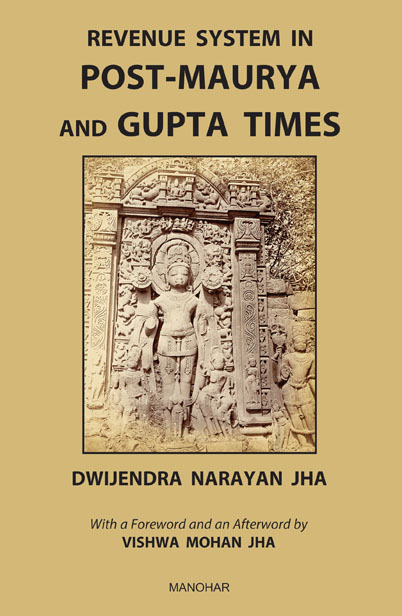Revenue System in Post-Maurya and Gupta Times
Dwijendra Narayan Jha (popularly known as D.N. Jha) was educated at the Presidency College, Calcutta and Patna University where he taught history for more than a decade. He was Professor of History, University of Delhi, until his retirement in 2005. He has authored several works including Ancient India; The Myth of the Holy Cow; Against the Grain and Rethinking Hindu Identity, etc. His edited works include Drink of Immortality: Essays on Distillation and Alcohol Use in Ancient India; The Feudal Order and Contesting Symbols and Stereotypes. He has travelled widely and has lectured at a number of educational institutions and universities in India and abroad including London, Kabul, Tokyo, Kyoto, Hamburg, Heidelberg and Leiden. He has also held visiting assignments at Paris and Kiel. ... Read more Read less
This is arguably the first systematic study of the revenue system in Post-Maurya and Gupta times. The author shows that some new principles of taxation were enunciated during the period under review. In earlier times the king was entitled to taxes in lieu of protection afforded to the people, but in the Gupta period royal ownership came to be considered as basis of taxation. The volume discusses the earliest epigraphic evidence regarding fiscal concessions granted to priests and temples. While explaining various taxes mentioned in land charters, the volume shows that fines and forced labour constituted important sources of revenue. Throughout this study note has been taken of regional variations in the interpretation of fiscal terms. Adequate attention has also been paid to the nature of emergency taxation and the machinery of revenue administration. The present edition includes a Foreword and an Afterword by Vishwa Mohan Jha which throws new light on this classic work.
... Read more Read less










